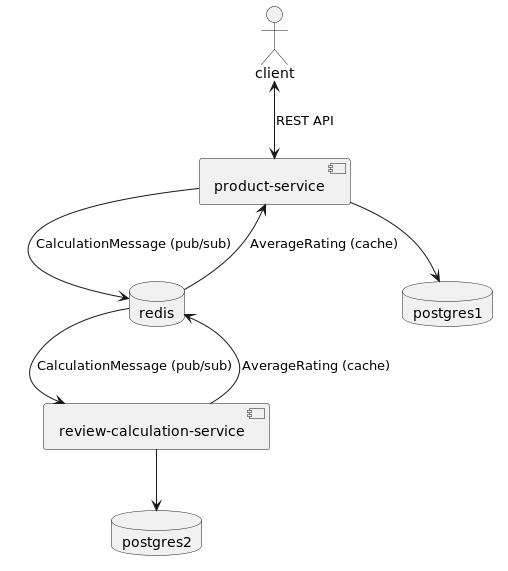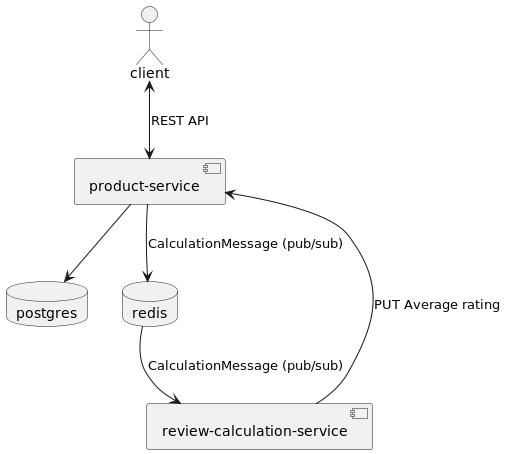I considered this architecture:
But than found a way where I could eliminate one database and improve "caching" of average ratings:
Reasoning/explanation:
-
All data are stored in single database, so that it is easier to join them
-
Redis here is used as MQ (pub/sub mode) to send review calculation messages from product-service to review-calculation-service
-
For average rating calculation, there is no need to have all the review present. These fields of CalculationMessage are enough:
- averageRating;
- originalCount;
- countChange;
- ratingChange;
-
Final average rating is:
newAverageRating = (averageRating * originalCount + ratingChange) / (originalCount + countChange) -
review-calculation-service informs product service about new average rating via private REST endpoint
-
Average rating is stored in products table
-
I know there was this sentence "Product reviews and average product ratings should be cached."
- To me storing those values in single database is far better "caching" storing them is separate in separate redis instance
- I believe it is worth to avoid caching if possible
- This would be faster, because I don't need to combine response from database and cache, single select is needed here
-
I did not have time to figure out enum for review.rating, Nest.js stack is new to me, so I had to learn a lot on the way
-
Typescript and ESLint configs were generated by Nest.js, didn't touch them
Further steps:
- Create authorization for private updateAverageRating endpoint, so that only review-calculation-service is able to call it
- Use more black box testing, that would cover also controller mappings
- Test also review-calculation-service
- Add authentication
- Tidy up URLs and env variables
- Secure postgres and redis much more
- Create Terraform orchestration, plug the project into CI/CD

